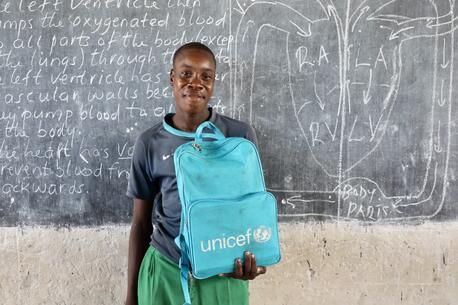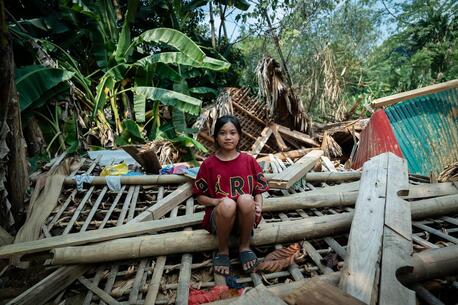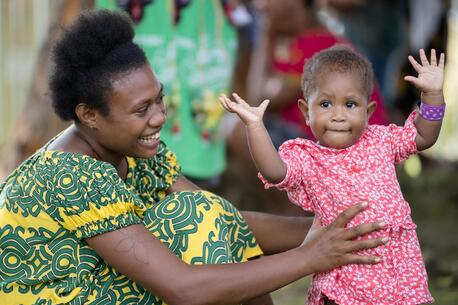
UNICEF in Papua New Guinea
Widespread poverty, health crises, climate-driven natural disasters and violent conflict are all deeply affecting the children of Papua New Guinea. Learn more about what UNICEF is doing to ensure a brighter future for every child in the country.
Children in Papua New Guinea in need of humanitarian support
The natural beauty of Papua New Guinea, a nation in the southwest Pacific with a population of more than 10 million, is a stark contrast to the realities of life for many children in the country. In this land filled with emerald rainforests, vibrant coral reefs and rugged highlands, there is also widespread poverty, numerous health crises, climate-driven disasters and violent conflict.
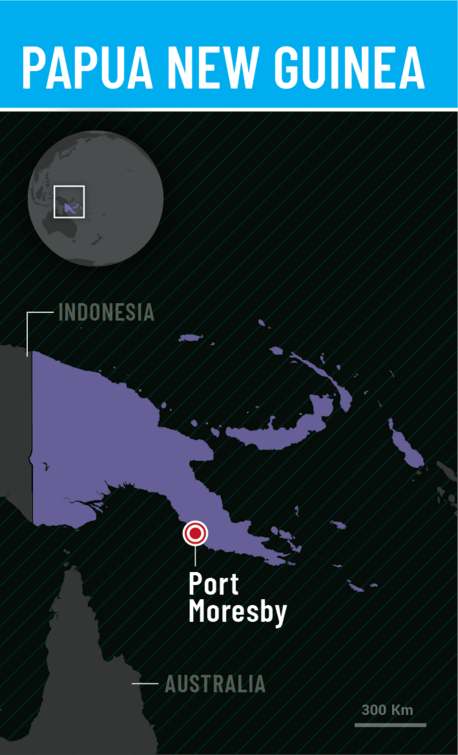
While there has been progress on many fronts, over 35 percent of the nation's population — nearly 4 million people — live in poverty. The financial disparity is even more pronounced in rural areas, with 40 percent of people impoverished compared to 27 percent in urban areas.
Mothers in Papua New Guinea continue to face health challenges. The maternal mortality rate in the country is significantly higher than the regional average. The under-5 mortality rate is also high.
And birth registrations are critically low, with only 13 percent of children under age 5 registered. This is an all too common social protection issue in the developing world; children who lack birth certificates risk missing out on routine health care, schooling and other essential services.
Stunting is a widespread problem due to chronic malnutrition, which affects half the country's under-5 population.
Only 35 percent of children complete primary school, fewer in rural areas. The secondary school dropout rate is high as well, with girls disproportionately affected. Papua New Guinea has the highest rate of child marriage in the region, with nearly 10 percent of girls aged 15-19 affected.
Three out of four children in the country also face physical violence; 85 percent of fathers report that they have beaten their children.
Lack of access to safe water and basic sanitation a widespread problem in Papua New Guinea
Another major hurdle for children and families in Papua New Guinea is the lack of access to safe water. Half of households are without access to improved water sources, forcing them to rely instead on potentially contaminated sources like surface water, dug wells and springs.
Over 80 percent of the population and 72 percent of schools also lack basic sanitation facilities.
In addition to these ongoing challenges, Papua New Guinea continues to be hit by natural disasters. Nearly 80 percent of the country’s infrastructure is vulnerable to damage from earthquakes.
Other threats include landslides and floods. Some coastal villages (5 percent) have already disappeared as a result of rising sea levels caused by global warming, forcing relocation and uncertainty for those communities.
Tribal clashes and election-related violence further disrupt essential services and threaten children's basic rights.
UNICEF is focused on providing urgent relief and addressing root causes of struggle for children
UNICEF's programming in Papua New Guinea takes a holistic and integrated approach that responds to immediate needs while also addressing the root causes of challenges faced by children in the country.
By focusing on climate and disaster resilience, strengthening and enhancing basic services, improving gender equality and reducing gender-based violence, UNICEF is working to ensure a brighter future for every child in the country.
Providing essential health care support to children and families in Papua New Guinea
In the health sector, UNICEF has been working in partnership with the Papua New Guinea National Department of Health to support the delivery of effective and efficient quality maternal, newborn and child health services.
Through this work, skilled birth attendance has increased by almost 20 percent and almost 400,000 mothers and newborns have received early essential newborn care. And more than 2,000 health care professionals have been trained in emergency obstetric and newborn care through UNICEF.
In addition, UNICEF has been working to strengthen partnerships with health centers and improve community-based intervention, leading to the training of nearly 1,000 village health assistants.
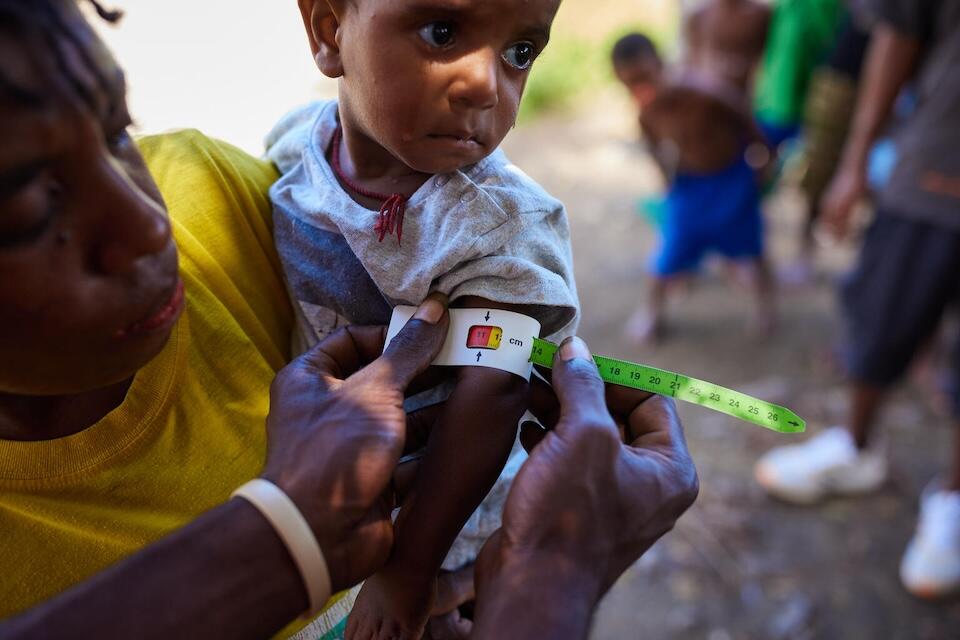
To help boost birth registration rates, UNICEF provided mobile registration kits to field officers to make it easier for them to add newborns as well as older children to the national registry. Each kit is capable of handling more than a thousand registrations per month, allowing a single field officer to conduct on-the-spot birth registration, helping to ensure the job gets done even in the most isolated areas, an important first step toward increasing impact across all program areas.
Routine immunization coverage in Papua New Guinea has also improved with UNICEF's help, thanks to targeted outreach in remote areas and efforts to address vaccine hesitancy. In 2023, over 75 percent of children under age 5 received measles and rubella vaccinations as well as vitamin A supplements. UNICEF also worked to secure almost 2 million COVID-19 vaccine doses for communities across the country.
Improving drinking water sources and nutrition services in Papua New Guinea
Through interventions in the water, sanitation and hygiene (WASH) sector, over half the population of Papua New Guinea has access to improved drinking water sources. UNICEF has also helped health care facilities and schools establish or improve their basic WASH services.
Improving WASH access has not only helped reduce disease transmission and improve children's health overall, it has also reduced time children spend collecting water for their families.
With technical support from UNICEF, the government of Papua New Guinea has expanded nutrition services to 12 provinces in the country, making them accessible in hundreds of health facilities, communities and schools.
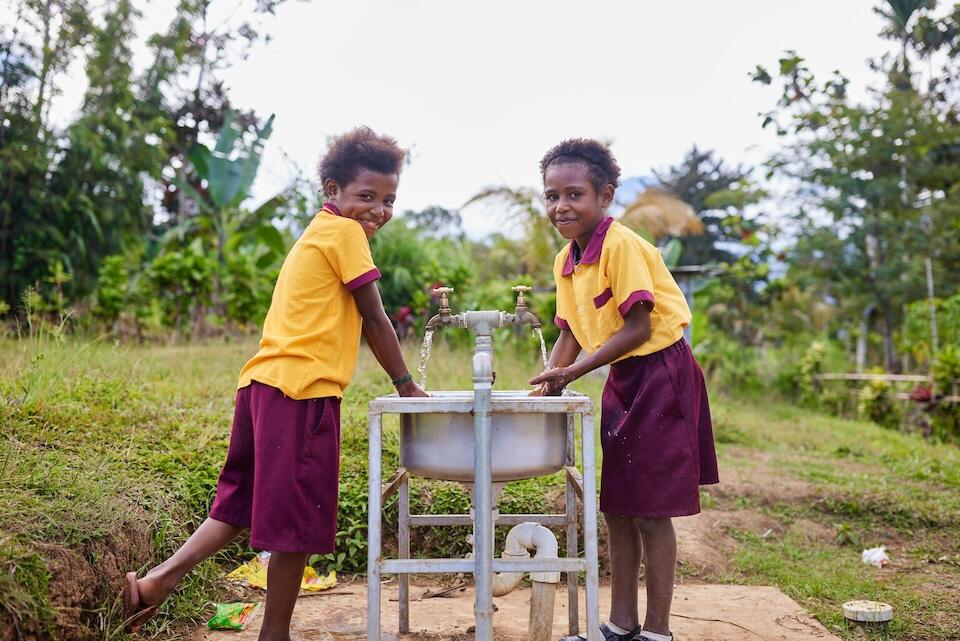
Supporting children’s education in Papua New Guinea
UNICEF has played a major role in improving access to early childhood education for the children of Papua New Guinea — considered critical to early childhood development and future learning success.
As part of this mission, UNICEF supported and advocated for the creation of the Early Childhood Education Unit within Papua New Guinea’s National Department of Education. UNICEF directly supports tens of thousands of children — more than half of them girls — with access to early education at preschools in 11 provinces, and has been instrumental in enabling 50,000 students — over half of them girls — to attend primary school in seven provinces.
And learning outcomes in the country are improving, with more students in Grade 3 meeting minimum proficiencies in reading and mathematics.
Other education-related priorities for UNICEF in the country include addressing violence, promoting inclusive environments and focusing on equitable gender norms in schools — all critical ways of contributing to better learning outcomes and enhancing children's overall well-being.
Child protection in Papua New Guinea
UNICEF’s advocacy has contributed to improvements in child protection-related policy changes and funding increases in Papua New Guinea.
For example, in 2015, the National Office of Child and Family Services became a stand-alone office, resulting in increased staff capacity dedicated to child protection. In 2023, Papua New Guinea committed over PKG 3.5 million (approximately $1 million) to child and family services in five provinces, a significant achievement.
When disaster strikes, helping to keep children safe is a top priority. A UNICEF emergency response typically includes creating safe temporary learning spaces, distributing teaching supplies and offering psychosocial support to affected children and families.
In a public health crisis, UNICEF supports emergency vaccinations and helps strengthen infection prevention measures.
In the face of tribal violence in the Enga and East Sepik provinces in 2024, UNICEF is working to meet the emergency needs of displaced families, while also calling for an end to the violence.
Collaborations with NGOs aim to strengthen the child protection system, while UNICEF-supported training initiatives have reached hundreds of participants in child protection, gender-based violence and mental health and psychosocial support.
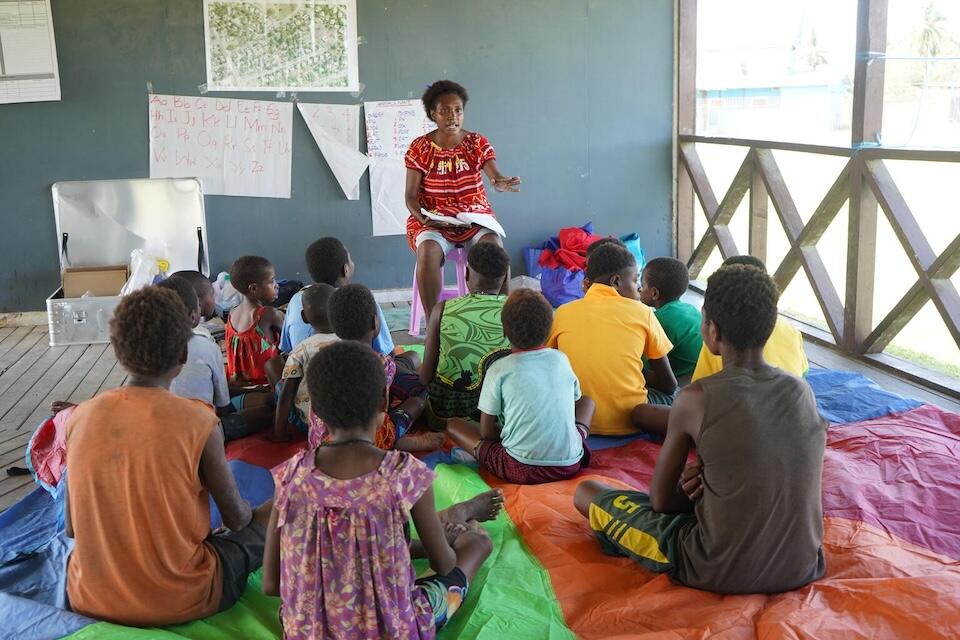
Help increase UNICEF's impact for children in Papua New Guinea and around the world. Donate today.
